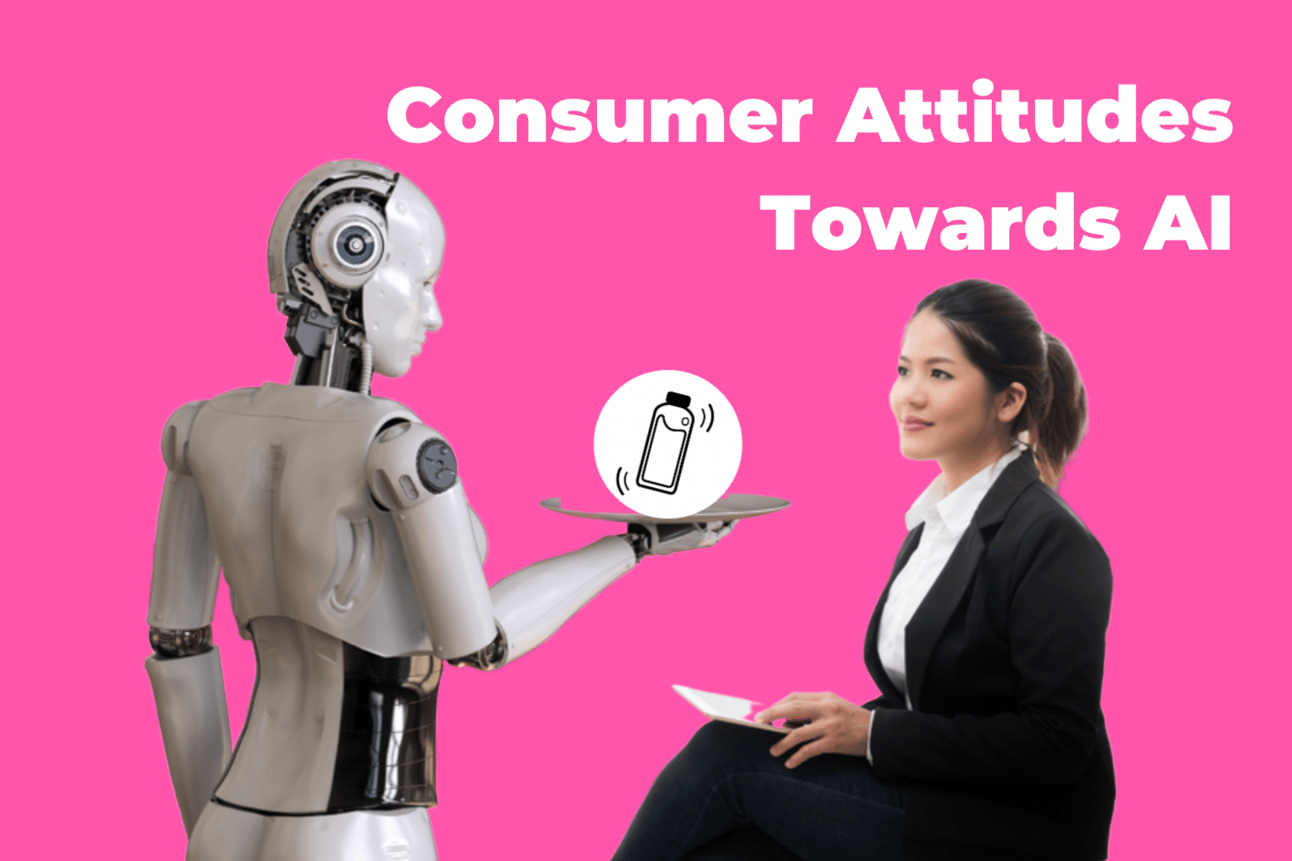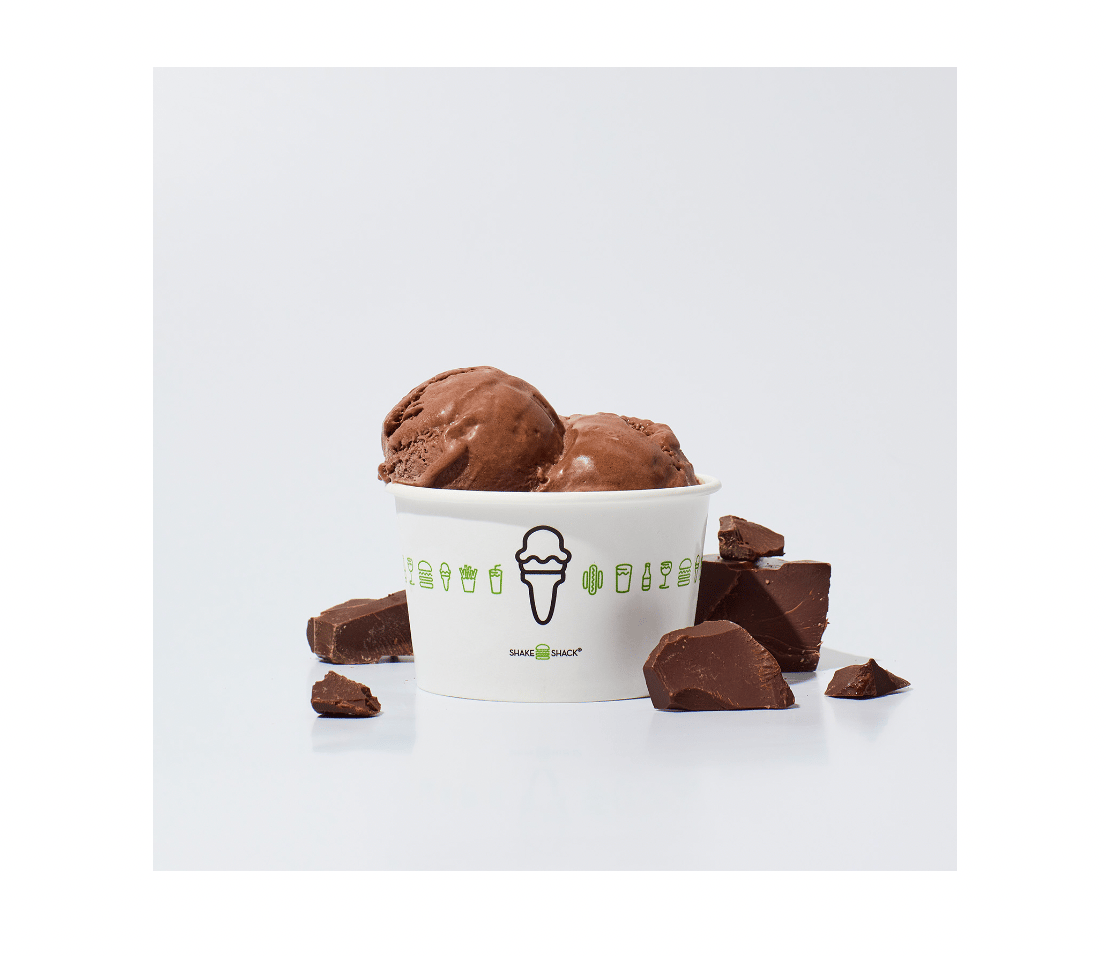About us: Market Shake is curated by GourmetPro. We help you unlock growth in F&B by matching you with local experts who have the skills and experiences to ensure your projects succeed. Explore our services.
The recent release of public generative AI, such as ChatGPT, has captured the global imagination, inspiring both excitement and fear about how the technology will transform our lives. But when it comes to our food and drink, what do consumers think about the applications of AI? Today we set out to analyze existing consumer intelligence and shed light on an answer.
Today:
In The News: Japanese dairy giant’s pea plans, controversial cacao, make-your-own sauce machines, and more.
Trending with Gen Z: narrating take-out food.
Innovation Deep Dive: Consumer attitudes towards AI in F&B
Overview of how consumers are reacting to AI
Profile of an AI forward consumer
What consumers want from AI for F&B

📰 In The News
A curation of our favorite F&B innovation stories from the week. Can be read in less than a 🧻 break.
Large chocolate companies are failing Ghanaian cacao farmers over living incomes according to Oxfam report. The report found cacao farmers’ net incomes have fallen by avg. 16% since 2020 while the four largest chocolate companies have made $15 billion in profits.
Angie’s Tempeh won first place at the KindEarth.Tech Foundation’s Alternative Protein & Food Tech Show 2023 Pitch Competition.
Heinz introduces REMIX, a customized sauce vending machine. The machine is capable of producing 200 different sauce combinations.
A study by UC Davis claims that the global warming potential of cultivated meat could be 4-25% higher than beef using ‘current production methods’. This highlights the need for investment in more advanced food-grade cell-ag production infrastructure. The study is yet to be peer-reviewed.
📱Trending With Gen-Z
What social media is telling us about Gen-Z’s cravings! Can be enjoyed during an 🛗 ride.
UK TikTok influencer @charlyannec’s video of her plating up Chinese take-out food went viral this month, attracting over 500,000 likes and millions of views. The video follows a recent social media trend of people plating up mountains of take-out food and introducing what they ordered. This particular video sparked a racism debate concerning the way people in Britain refer to take-out food.
🚀 Innovation Deep Dive: Attitudes Toward AI
Weekly deep dive into an F&B trend. Can be read in less than a 🚋 ride.
In the last 6 months, generative AI has boomed. The launch of public tools like ChatGPT and DALL-E 2 has resulted in widespread awareness and adoption of the technology. Yet the speed at which AI is developing is also causing concern amongst governments, consumers, and the AI industry itself.
Last week, Sam Altman, CEO of leading generative AI company Open AI, testified before the US Senate that AI needs to be regulated, otherwise, it could go “very wrong”. Recent consumer research from IPSOS shows that nearly 50% of the US public also feels that AI is being developed “too quickly”. Likewise, a survey conducted by the consumer affairs agency in Japan identified that 50% of the public is “anxious” about AI.
Given that some consumers have doubts about the technology, today we ask - what do consumers think about using AI for food and beverage applications?
NB: the content of this article mostly focuses on consumer-facing applications of AI such as restaurant menu recommendations or meal plan customization.
Overview Of How Consumers Are Reacting To AI In F&B
AI is already present across the whole F&B value chain, from agriculture to food safety, concept development to production, marketing to personalization, and beyond. This is a boon for efficiency focussed businesses, but what do consumers think?
Research suggests they’re intrigued. A report by Dataessential found that 77% of consumers are open to trying a dish or product created by a computer. 75% of Gen-Z report preferring brands they can chat with online, a perfect use-case for AI-powered chatbots.
Now that AI is all the rage, businesses are seeing the benefits of promoting the use of AI in food products, as Beck’s did with its Autonomous beer. But once the buzz around AI dies down, will there be any merit in plastering “AI” all over product promotion and packaging? Let’s find out.
Profile Of A Consumer
Current research suggests that Gen-Z are AI enthusiasts. This consumer group is already familiar with the benefits of AI through social media platforms, like TikTok’s video filtering algorithm. Just like with SNS content, Gen-Z craves personalization in all aspects of the shopping experience. Here AI has a lot of potential in F&B, from customized product formulations to restaurant menu recommendations.
Hot on the heels of Gen-Z consumers are the up-and-coming Alpha generation, for whom an AI-powered world will likely be the norm. The age group, set to number almost 2 billion by 2025, is already starting to influence purchasing decisions in households as they reach teenagerhood. Gen-Alpha is tech-savvy and will appreciate products that are too when they start making their own purchases.
With that said, data suggests all demographics see the benefits of AI to make routine tasks more efficient. In the case of food and beverage, consumers are excited about AI-generated grocery lists, recipes, and menu recommendations 🛒👩🍳🍷
Share insights with colleagues and friends:
What Consumers Want From AI When It Comes To Food
Once the current hype storm around AI dies down, AI’s involvement in food and beverage production and consumer experience will mostly go unseen. Though we imagine there will be small groups of consumers who will always be receptive to the “coolness” of AI in marketing. Ultimately, though, it is the benefits that AI brings to products or consumer interactions that consumers will care about.
Let’s explore what consumers expect here.
✅ Consumers Are Excited About:
Personalization - according to CDP, a market research company, the majority of consumers are excited by the potential that AI brings for personalization. Growing recognition of individual nutrition is already creating demand in this space for services that analyze consumers’ health and dietary preferences and generate customized meal plans.
Convenience - the modern-day, always-on, and overworked consumer values convenience, second only to health. AI brings a wealth of possibilities that consumers are excited about, such as faster response times from AI-powered support when making purchases, to automating things like grocery delivery.
Like what you’re reading?
Unique experiences - Dataessential has flagged that consumers increasingly seek unique and “weird” F&B experiences. Here AI can help businesses stand out with eccentric product development ideas, brand designs beyond the realms of human creativity, and much more.

❌ Consumers Are Worried About:
Privacy - personalization requires a deep understanding of customer data. Conversely, 81% of consumers are concerned about providing their data for marketing, consumer experience, and other services. F&B-related services using consumer data, like personalized meal planning, must be clear about what data they collect and how it’s processed.
Manipulation - consumers and the industry are concerned about how AI could be used to negatively influence consumers. An example is aggressive advertising campaigns. If an AI learns that certain groups are more likely to purchase an unhealthy snack, it could aggressively target those groups with ads to the detriment of their health.
Context - research has shown that consumer attitudes and responses to AI may change depending on the context in which it’s used. A recent study examined how consumers perceived the use of AI in fast food and fine dining restaurants. The results found that in the case of fine dining especially, consumers viewed the use of AI to support service and food preparation negatively. This shows that companies need to have a good understanding of the values that consumers attach to different products and experiences, and how these align with artificial intelligence.
Takeaways
Ultimately, companies need to develop an understanding of how AI is perceived by consumers before employing and promoting it, especially in cases where consumers have direct interactions and share personal information.
For behind-the-scenes applications of AI in F&B, such as for product development or production, companies should focus on promoting the benefits it brings to consumers rather than leaning too heavily on AI’s involvement. Resist the urge to rely solely on buzzwords people.
Having said that, AI is the topic of the hour, so now’s the time to shout about it if your products are made using the tech. We certainly won’t say no to more AI-powered delights like Shake Shack’s new plant-based desserts!
That’s all folks
Thanks for reading today’s newsletter.
Share your ideas for how we can improve with this 30-second, anonymous, 2-question survey:
See you next week as we meet the companies that are bringing AI innovations to the F&B industry.
Made with ❤️ by GourmetPro - your network of Food & Beverage experts, on demand.
💌 If you have any questions, you can directly answer this email. We read and answer all messages.
💖 And if you think someone you know might be interested in this edition of Market Shake, feel free to simply forward this email or click the button below. 💖
